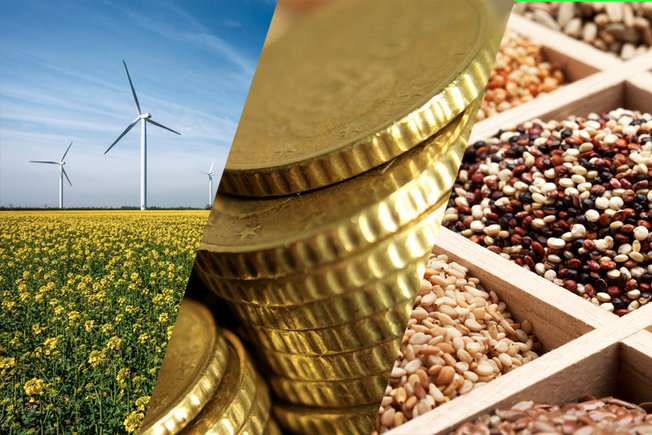 Commodities are raw materials that are either consumed directly, such as food, or used as building blocks to create other products. These materials include energy sources like oil and gas, natural resources like timber and agricultural products, or precious metals like gold and platinum. Commodities are an important way for investors to diversify beyond traditional stocks and bonds, or to profit from a conviction about price movements.
Commodities are raw materials that are either consumed directly, such as food, or used as building blocks to create other products. These materials include energy sources like oil and gas, natural resources like timber and agricultural products, or precious metals like gold and platinum. Commodities are an important way for investors to diversify beyond traditional stocks and bonds, or to profit from a conviction about price movements.
Commodities are standardized across producers with the use of minimum quality standards, called basic grades. This allows them to be interchangeable and grants each type of commodity a value that can fluctuate with the movements of the global market. Commodities investing is the way in which investors, from individuals to large banks, can make money trading commodities and commodity securities by taking advantage of these movements.
Commodities have traditionally been traded in the futures market, which can be risky due to the amount of leverage involved. For example, an investor will enter into an agreement to buy or sell a set amount of a commodity at a predetermined price and at a future date. That means that just a small amount of cash can control a large amount of a commodity with a small price increase or decrease leading to a huge gain or loss.
Commodities can play a useful long-term role for private investors as a portfolio diversifier, inflation hedge and to take a bet on specific industries or regions. However, investors should be aware of whether or not the investment provides exposure to the underlying commodity. In addition, you should look at the rest of your portfolio, as oil and gas companies, for example, already make up a significant proportion of the FTSE 100. For asset diversification, consider investing in the physical metal or commodity itself, or otherwise spreading risk by investing in a fund.
Apart from the risks associated with commodity investing, these funds also carry many of the risks that go along with investing in foreign and emerging markets, including volatility caused by political, economic, and currency instability. Bottom line, there are different types of commodity investments for novice and experienced traders to consider. Although commodity futures contracts provide the most direct way to participate in price movements, other types of investments with varying risk and investment profiles also provide exposure to the commodities markets.







